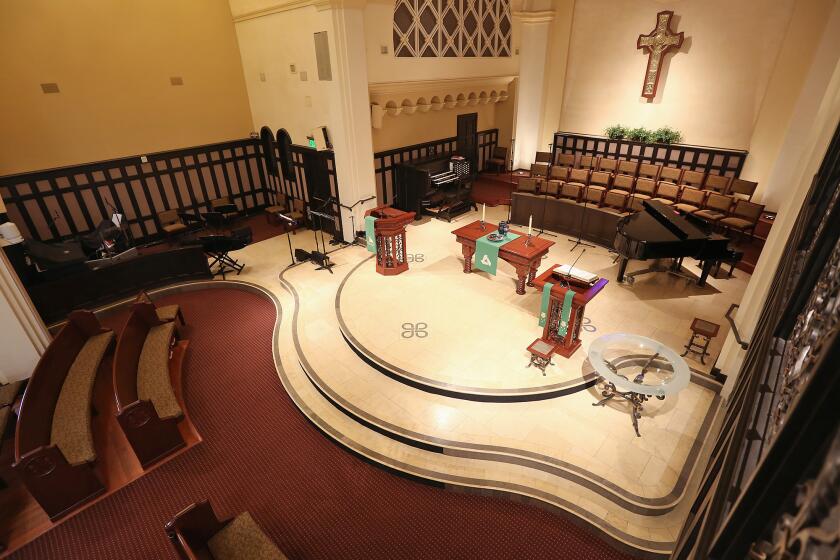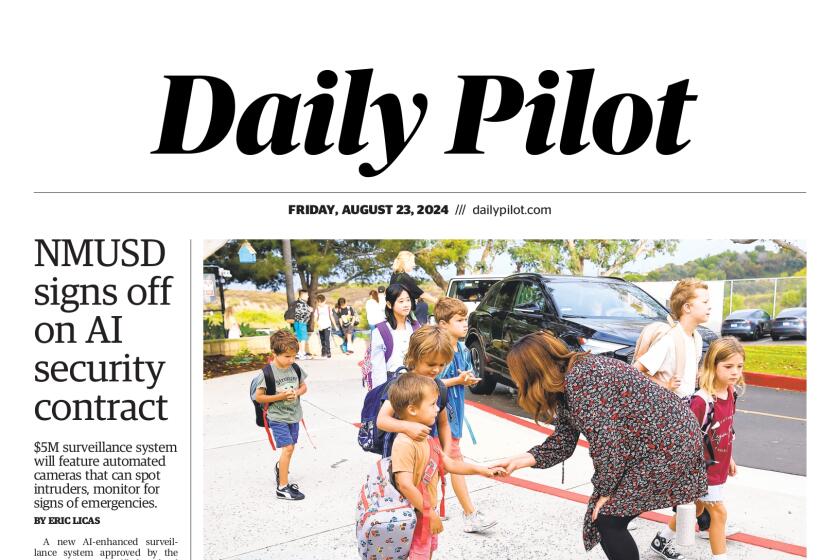IN THEORY:
U.S. Catholic bishops recently issued a statement on faith and politics that said voters faced with choosing between candidates endorsing an “intrinsic evil, such as support for legal abortion or the promotion of racism,” may take the “extraordinary step” of skipping the election or picking a candidate “deemed less likely to advance such morally flawed position.” Do you think it’s OK for voters not to take a ballot when presented with candidates who don’t represent their religious beliefs, or should they pick the lesser of two evils?
There is very little possibility that any candidate will concur in all aspects of a voters’ political and ethical philosophy.
Our responsibility is to examine each candidate’s platform and then select the one who most closely agrees with us.
If I were adamant on any extremely controversial subject, would it be appropriate to vote for the candidate who met one qualification but took positions contrary to America’s best interests? Not hardly.
First, I would select the party whose philosophy agrees most with what’s best for my country.
Then I would select the candidate with the standards and leadership that will point America in the right direction.
If I strongly believed that the candidate of another party was clearly the better selection, I would vote for that person and work to keep him or her informed of my opinion.
If it turned out that both major parties chose candidates who went against one of my major requirements, I have three choices: refrain from voting, choose the best of the two candidates or cast my vote for a third-party candidate.
It would seem to me that the middle choice is the best alternative.
The only way I would be comfortable with not voting at all would be if deep in my heart I felt that all of the candidates were woefully lacking in integrity and character.
A revelation given to the Latter-day Saints on Aug. 17, 1835, counsels us:
“We believe that all men are bound to sustain and uphold the respective governments in which they reside and that all governments have a right to enact such laws as in their own judgments are best calculated to secure the public interest; at the same time however, holding sacred the freedom of conscience; and that to the laws all men show respect and deference, as without them peace and harmony would be supplanted by anarchy and terror ”
Voting is a sacred responsibility and deserves our best efforts in seeking out the information that will assist us in making our choice.
There should not be a one-item litmus test that overshadows everything else if the candidate’s character, integrity, background and experience are not wanting.
Tom Thorkelson
Director of Interfaith Relations for Orange County
The Church of Jesus Christ of Latter-day Saints
Analyzing election returns is more often a pastime of political scientists than of politicians. The latter are concerned with only one question: Who will vote for them? For many reasons, it is the only relevant one. What does it mean for the upcoming presidential election? There are enough issues to vote on for each of us. One must vote for the best possible candidate of their choice. Each election for president, the most powerful political office in the world, draws the most attention as well as the most candidates in the primaries. Our voting behavior is an examination of the best possible candidate. If we went out to a restaurant for Thanksgiving Dinner and we didn’t like turkey, there would be something else to eat, or you could even order off the menu. The same goes for elections as you can cast your ballot for a write-in candidate. Our government asks us to vote. It is a reasonable request that should be met by every American.
RABBI MARC RUBENSTEIN
Temple Isaiah
Newport Beach
All the latest on Orange County from Orange County.
Get our free TimesOC newsletter.
You may occasionally receive promotional content from the Daily Pilot.



